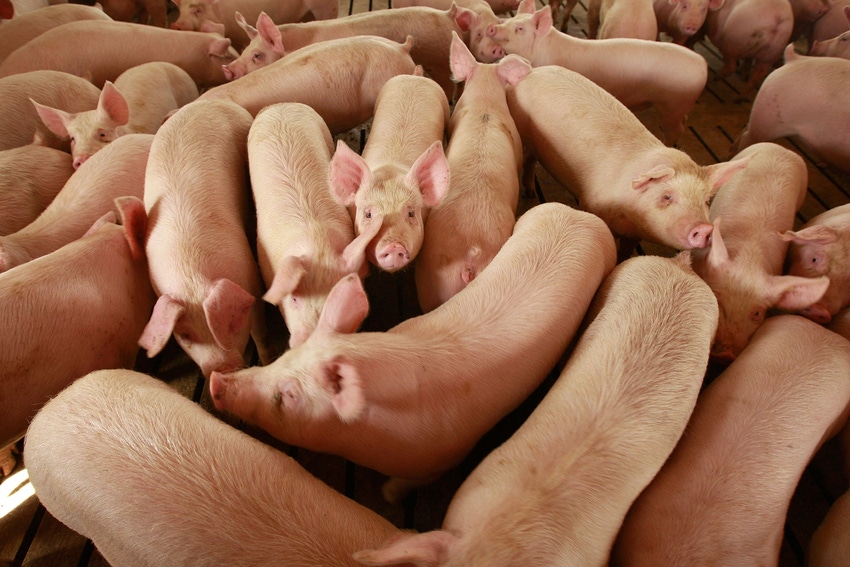Grant will support research into integrating genomic model with models of swine growth developed and used to formulate rations.
August 21, 2020

A research group led by Iowa State University distinguished professor of animal science Jack Dekkers has received a grant from the U.S. Department of Agriculture's National Institute of Food & Agriculture to further the genetic improvement of livestock by integrating biological models of growth that have been developed by animal nutritionists.
The $500,000, two-year grant will support the project titled “Integration of Biological Models in Genomic Evaluation: Pig-Growth-Model Whole Genome Prediction (PGM-WGP)” as part of a national USDA initiative for "Research in Tools & Resources for Animal Breeding, Genetics & Genomics Research," the announcement from Iowa State said.
Genomic evaluation and selection are used to improve the rate of genetic gain by identifying the animals with the best genetics for traits of economic importance, Iowa State said. Using these animals for breeding future generations results in a more profitable final product, increased value of byproducts and more. However, existing genomic evaluation models often fail to predict how the progeny of an animal will perform when they are exposed to diverse environmental conditions, according to the announcement.
This research will take an existing genomic model and integrate it with models of growth that have been developed and used to formulate swine rations, which will allow breeders to better predict the genetics of an animal that underpin an animal’s ability to grow under different environmental conditions, including temperature, humidity, diets and disease, the announcement said.
"The idea to incorporate a biological growth model into genomic evaluation of pigs is based on similar work that has been conducted by scientists at Corteva, formerly Pioneer, who have successfully integrated crop growth models into genomic evaluation to predict the performance of corn hybrids under normal versus drought conditions," Dekkers said.
Co-director Nick Serão, assistant professor of animal breeding, agreed, adding, “The integration of biological models with genomic models is expected to have a significant impact on genetic improvement for different environments in the swine industry.”
To develop the model, the team will use in-depth data on feed intake, bodyweights and body composition of pigs from several lines of a commercial breeding company. The resulting model will be validated using these data to demonstrate its ability to improve prediction.
This project is being directed by Dekkers and will be co-directed by Serão and Andrea Doeschl-Wilson, reader and group leader of the Mathematical Modeling Group and deputy head of The Roslin Institute's Genetics & Genomics Division in the U.K. Other team members include Iowa State professor of animal breeding Rohan Fernando and assistant professor of animal nutrition Jayasooriya Ranga Appuhamy, along with a post-doctoral fellow and a doctoral student who will be appointed to help conduct the research. Another collaborator is Jaap van Milgen, senior researcher and deputy-head of the INRAe-Agrocampus West Research Unit and developer of the INRA-Porc growth nutrition model. Several industry partners are also involved to supply insight, provide access to data and help facilitate model validation, Iowa State said.
You May Also Like


.png?width=300&auto=webp&quality=80&disable=upscale)
